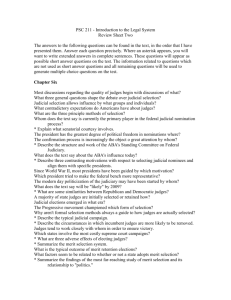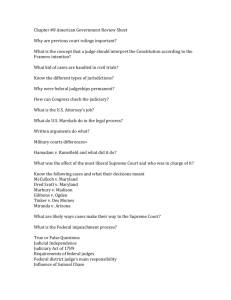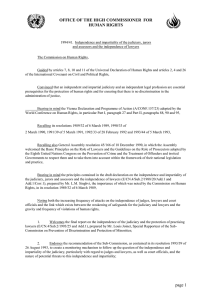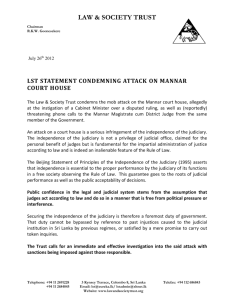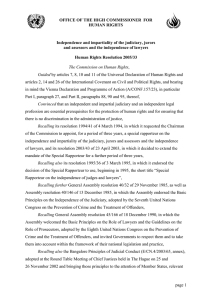A General Assembly United Nations Human Rights Council
advertisement
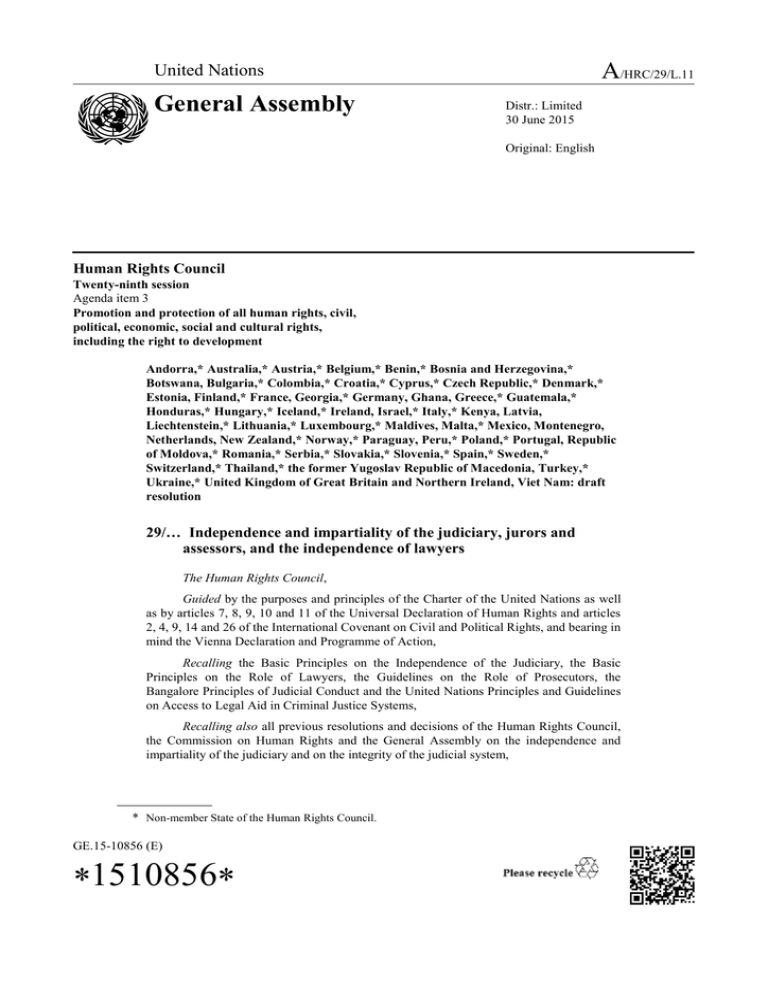
A/HRC/29/L.11 United Nations General Assembly Distr.: Limited 30 June 2015 Original: English Human Rights Council Twenty-ninth session Agenda item 3 Promotion and protection of all human rights, civil, political, economic, social and cultural rights, including the right to development Andorra,* Australia,* Austria,* Belgium,* Benin,* Bosnia and Herzegovina,* Botswana, Bulgaria,* Colombia,* Croatia,* Cyprus,* Czech Republic,* Denmark,* Estonia, Finland,* France, Georgia,* Germany, Ghana, Greece,* Guatemala,* Honduras,* Hungary,* Iceland,* Ireland, Israel,* Italy,* Kenya, Latvia, Liechtenstein,* Lithuania,* Luxembourg,* Maldives, Malta,* Mexico, Montenegro, Netherlands, New Zealand,* Norway,* Paraguay, Peru,* Poland,* Portugal, Republic of Moldova,* Romania,* Serbia,* Slovakia,* Slovenia,* Spain,* Sweden,* Switzerland,* Thailand,* the former Yugoslav Republic of Macedonia, Turkey,* Ukraine,* United Kingdom of Great Britain and Northern Ireland, Viet Nam: draft resolution 29/… Independence and impartiality of the judiciary, jurors and assessors, and the independence of lawyers The Human Rights Council, Guided by the purposes and principles of the Charter of the United Nations as well as by articles 7, 8, 9, 10 and 11 of the Universal Declaration of Human Rights and articles 2, 4, 9, 14 and 26 of the International Covenant on Civil and Political Rights, and bearing in mind the Vienna Declaration and Programme of Action, Recalling the Basic Principles on the Independence of the Judiciary, the Basic Principles on the Role of Lawyers, the Guidelines on the Role of Prosecutors, the Bangalore Principles of Judicial Conduct and the United Nations Principles and Guidelines on Access to Legal Aid in Criminal Justice Systems, Recalling also all previous resolutions and decisions of the Human Rights Council, the Commission on Human Rights and the General Assembly on the independence and impartiality of the judiciary and on the integrity of the judicial system, * Non-member State of the Human Rights Council. GE.15-10856 (E) A/HRC/29/L.11 Taking note of the reports of the Special Rapporteur on the independence of judges and lawyers submitted to the Human Rights Council at its twenty-sixth and twenty-ninth sessions, on judicial accountability1 and on the protection of children’s rights in the justice system,2 respectively, Convinced that an independent and impartial judiciary, an independent legal profession, an objective and impartial prosecution able to perform its functions accordingly, and the integrity of the judicial system are prerequisites for the protection of human rights and the application of the rule of law, and for ensuring fair trials and the administration of justice without any discrimination, Recalling that prosecutors should, in accordance with the law, perform their functions fairly, consistently and expeditiously, respect and protect human dignity, and uphold human rights, thus contributing to due process and the smooth functioning of the criminal justice system, Condemning the increasingly frequent attacks on the independence of judges, lawyers, prosecutors and court officials, in particular threats, intimidation and interference in the discharge of their professional functions, Recalling that every State should provide an effective framework of remedies to redress human rights grievances or violations and that the administration of justice, including law enforcement and prosecutorial agencies and, especially, an independent judiciary and legal profession in full conformity with applicable standards contained in international human rights instruments, is essential to the full and non-discriminatory realization of human rights and indispensable to the processes of democracy and sustainable development, Recalling also that it is essential to ensure that judges, prosecutors, lawyers and court officials possess the professional qualifications required for the performance of their functions through improved methods of recruitment and legal and professional training, and through the provision of all necessary means for the proper performance of their role in ensuring the rule of law, Stressing the importance of ensuring accountability, transparency and integrity in the judiciary as an essential element of judicial independence and a concept inherent to the rule of law, when it is implemented in line with the Basic Principles on the Independence of the Judiciary and other relevant human rights norms, principles and standards, Emphasizing that judges, prosecutors and lawyers play a critical role in upholding human rights, including the absolute and non-derogable right of freedom from torture and other cruel, inhuman or degrading treatment or punishment, Emphasizing also that an independent and impartial judiciary, objective and impartial prosecution services and an independent legal profession, which foster a balanced representation of men and women and the establishment of gender-sensitive procedures, are essential for the effective protection of women’s rights, including protection from violence and revictimization through court systems, to ensuring that the administration of justice is free from gender-based discrimination and stereotypes, and to a recognition that both men and women benefit when women are treated equally by the justice sector, 1 2 2 A/HRC/26/32. A/HRC/29/26. A/HRC/29/L.11 Recognizing the importance of bar associations, professional associations of judges and prosecutors, and non-governmental organizations working in defence of the principle of the independence of judges and lawyers, Stressing the role that independent and effective national human rights institutions established in accordance with the principles relating to the status of national institutions for the promotion and protection of human rights (the Paris Principles) can and should play in strengthening the rule of law and in supporting the independence and integrity of the judicial system, Recognizing that legal aid is an essential element of a fair, humane and efficient system of administration of justice that is based on the rule of law, Acknowledging that children who come into contact with the law and/or the justice system have rights, needs and interests that must be considered and respected, including through the provision of child-friendly procedures, and that the administration of justice must be in line with States’ commitments and obligations under international human rights instruments, in particular the Convention on the Rights of the Child, and with principles and standards relating to children, including the principles of non-discrimination and the best interests of the child, as well as the right to life and the right of the child to express his or her own views freely in all matters affecting him or her, the views of the child being given due weight in accordance with the age and maturity of the child, Reaffirming that the best interests of the child shall be a primary consideration in all decisions concerning the child in the administration of justice, including in relation to pretrial measures, as well as being an important consideration in all matters concerning the child with regard to the sentencing of his or her parents, or, where applicable, legal guardians or primary caregivers, Noting the special needs of children in situations of vulnerability who are in contact with justice systems, who may require particular attention, protection and skills from the professionals interacting with them, especially from lawyers, prosecutors and judges, Reaffirming Human Rights Council resolution 26/7 of 26 June 2014, in which the Council extended the mandate of the Special Rapporteur on the independence of judges and lawyers for a period of three years, and acknowledging the importance of the mandate holder’s ability to cooperate closely, within the framework of the mandate, with the Office of the United Nations High Commissioner for Human Rights, including in the fields of advisory services and technical cooperation, in the effort to guarantee the independence of judges and lawyers, 1. Calls upon all States to guarantee the independence of judges and lawyers and the objectivity and impartiality of prosecutors, as well as their ability to perform their functions accordingly, including by taking effective legislative, law enforcement and other appropriate measures that will enable them to carry out their professional functions without interference, harassment, threats or intimidation of any kind; 2. Encourages States to promote diversity in the composition of the members of the judiciary, including by taking into account a gender perspective and by actively promoting the balanced representation of women and men from various segments of society at all levels, and to ensure that the requirements for joining the judiciary and the selection process thereof are non-discriminatory, public and transparent, based on objective criteria, and guarantee the appointment of individuals of integrity and ability with appropriate training and qualifications in law, based on individual merit and under equal working conditions; 3. Stresses that the term of office of judges, their independence, security, adequate remuneration, conditions of service, pensions and age of retirement should be 3 A/HRC/29/L.11 adequately secured by law, that the security of tenure of judges is an essential guarantee of the independence of the judiciary and that grounds for their removal must be explicit with well-defined circumstances provided by law, involving reasons of incapacity or behaviour that renders them unfit to discharge their functions, and that procedures upon which the discipline, suspension or removal of a judge are based should comply with due process; 4. Encourages States to put in place legal and policy frameworks conducive to the development and reinforcement of a child-sensitive justice system, in line with their commitments and obligations under international human rights instruments, in particular the Convention on the Rights of the Child, and with principles and standards relating to children, and stresses that the rights and best interests of the child should be taken into account by judges, prosecutors and lawyers in the performance of their functions in all matters concerning children; 5. Also encourages States to develop, as appropriate, policies, procedures and programmes in the area of restorative justice as part of a comprehensive justice system; 6. Further encourages States to consider, in collaboration with relevant national entities such as bar associations, associations of judges and prosecutors, and educational institutions assisting the judiciary, developing guidance on issues such as gender, children, persons with disabilities, indigenous peoples, and migrants, among others, to inform the action of judges, lawyers, prosecutors and other actors in the judicial system; 7. Calls upon States to ensure that prosecutors can perform their functional activities in an independent, objective and impartial manner; 8. Condemns all acts of violence, intimidation or reprisal, from any quarter and for any reason, against judges, prosecutors and lawyers, and reminds States of their duty to uphold the integrity of judges, prosecutors and lawyers and to protect them, as well as their families and professional associates, against all forms of violence, threat, retaliation, intimidation and harassment resulting from the discharging of their functions, and to condemn such acts and bring the perpetrators to justice; 9. Calls upon States, in collaboration with relevant national entities such as bar associations, associations of judges and prosecutors, and educational institutions, to provide adequate training, including human rights training, for judges, prosecutors and lawyers, both on initial appointment and periodically throughout their careers, taking into account regional and international human rights law and, where applicable and relevant, the concluding observations and decisions of human rights mechanisms, such as treaty bodies and regional human rights courts; 10. Underscores the importance for States of developing and implementing an effective and sustainable legal aid system that is consistent with their international human rights obligations and takes into account relevant commitments and good practices, and of ensuring that legal aid is available at all stages of the criminal justice process, subject to appropriate eligibility criteria and in accordance with international human rights law; 11. Urges all Governments to cooperate with and to assist the Special Rapporteur on the independence of judges and lawyers in the performance of his or her tasks, to provide all information requested and to respond to communications transmitted to them by the Special Rapporteur without undue delay; 12. Invites the Special Rapporteur to collaborate with relevant stakeholders within the United Nations system in the areas pertaining to the mandate; 13. Calls upon Governments to give serious consideration to responding favourably to the requests of the Special Rapporteur to visit their country, and urges States to enter into a constructive dialogue with the Special Rapporteur with respect to the follow- 4 A/HRC/29/L.11 up to and implementation of his or her recommendations to enable him or her to fulfil the mandate even more effectively; 14. Encourages the Special Rapporteur to facilitate the provision of technical assistance and capacity-building, and the dissemination of best practices, including through engagement with relevant stakeholders and in consultation with the Office of the United Nations High Commissioner for Human Rights, when requested by the State concerned, with a view to establishing and strengthening the rule of law, paying particular attention to the administration of justice and the role of an independent and competent judiciary and legal profession; 15. Encourages Governments that face difficulties in guaranteeing the independence of judges and lawyers, the objectivity and impartiality of prosecutors and their ability to perform their functions accordingly, or that are determined to take measures to implement these principles further to consult and to consider the services of the Special Rapporteur, for instance by inviting him or her to their country; 16. Also encourages Governments to give due consideration to recommendations made by United Nations human rights mechanisms, as well as to implement supported recommendations of the universal periodic review process, addressing the independence and effectiveness of the judiciary and their effective implementation, and invites the international community, regional organizations and the United Nations system to support any implementation efforts; 17. Invites United Nations agencies, funds and programmes to continue their activities in the areas of the administration of justice and the rule of law, including at the country level at the request of the State, encourages States to reflect such activities in their national capacity-building plans, and emphasizes that institutions concerned with the administration of justice should be properly funded; 18. Encourages States to ensure that their legal frameworks, implementing regulations and judicial manuals are fully in line with their international obligations and take into account relevant commitments in the areas of the administration of justice and the rule of law; 19. Decides to continue consideration of this issue in accordance with its annual programme of work. 5
